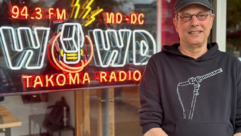Localism proceeding portends re-regulation of radio
Apr 1, 2008 12:00 PM, By Harry Martin
In January the FCC released its notice of proposed rulemaking (NPRM) announcing tentative conclusions and proposed rules concerning localism. The retroactive nature of many of the Commission’s proposals has engendered a strong response by the broadcast industry. Comments on the proposals are due April 28. Many observers have suggested that if the proposed rules are adopted, the FCC will be turning back the clock nearly three decades, with licensees having to start complying again with burdensome record-keeping, ascertainment, studio location and staffing requirements that were dispensed with years ago.
According to the Commission, the proposed rules are designed to address the perception that broadcasters may not be addressing the needs and interests of their communities sufficiently. Over the past several years, the Commission has solicited comments from the public and engaged in localism hearings at venues all over the country. From comments received through that process, the Commission has determined that �many stations do not engage in the necessary public dialogue as to community needs and interests and that members of the public are not fully aware of the local issue-responsive programming that their local stations have aired.�
The following are some of the highlights of the FCC’s proposals to address this determination:
- The Commission has tentatively concluded that each licensee should be required to establish a permanent community advisory board that would assist in ascertaining local issues and provide ideas for responsive programming.
- Stations would be required to have staffing at their facilities 24 hours per day.
- Stations would be required to maintain their main studios within their communities of license. Currently a main studio can be located anywhere within 25 miles of the community of license.
- The Commission has tentatively concluded that it will reintroduce renewal application processing guidelines incorporating a specified minimum percentage of programming aimed at addressing local issues. Licensees meeting the requisite percentages would have their renewals processed by the Media Bureau, while those falling short would have their renewals considered by the full Commission.
- The Commission is considering the adoption of rules to foster improved communication between licensees and their communities, including requirements for the following: ad hoc viewer surveys via telephone or Internet; town hall meetings to help prioritize issues to be covered through news and informational programming; participation by station management on community boards, councils and commissions; and the establishment of dedicated telephone numbers, websites and email addresses, publicized during programming, to facilitate community dialogue.
- The Commission is also seeking comment on the prevalence of voice-tracking and whether anything can and/or should be done to limit that practice. Also in the content area, the Commission is seeking comment on whether it should require licensees to maintain and make available data regarding the airing of local music.
While many of these proposals clearly will not be adopted, the fact that some of them are being considered at all is worrisome. Keep in mind that the FCC’s localism proposals will not surface for a vote until a new FCC chairman, most likely a Democrat, is in office.
Dateline
June 2 is the deadline for submission of biennial ownership reports by radio stations in Michigan and Ohio.
On June 2, radio stations with more than 10 full-time employees that are located in Michigan and Ohio must electronically file their Broadcast EEO Mid-Term Reports (Form 397) with the FCC.
Also on or before June 2, radio stations licensed in the following jurisdictions must place their annual EEO Reports in their public files: Arizona, D.C., Idaho, Maryland, Michigan, New Mexico, Nevada, Ohio, Utah, Virginia, West Virginia and Wyoming.
Martin is a past president of the Federal Communications Bar Association and a member of Fletcher, Heald & Hildreth, Arlington, VA. E-mail[email protected].










